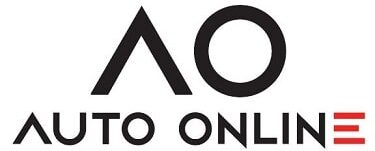- 021 982 8182

In the world of online car sales, the road ahead is filled with exciting possibilities and innovations, driven by changing consumer trends in the US and Europe. As technology continues to reshape the automotive landscape, we find ourselves at the intersection of convenience, customisation, and cutting-edge experiences. Let’s have a quick look at some of the current online car buying trends.
The Rise of Hybrid Shopping Models
In the ever-changing landscape of consumer behaviour, a notable online car buying trend has emerged—the rise of hybrid shopping models. There is a growing preference among consumers for a hybrid approach that blends the convenience of online research and transactions with the tangible experience of test drives and in-person visits to dealerships.
Modern buyers are looking for flexibility in their shopping experience, and the hybrid model caters to this demand. Online car sales platforms offer the convenience of easy research, allowing buyers to compare models, features, and prices from the comfort of their homes. The ease of online transactions and the ability to explore financing options all contribute to the allure of the digital sphere.
However, despite the convenience offered, consumers still want the tactile experience of interacting with a vehicle in the real world. The tangible aspects of a test drive, the ability to feel and smell the upholstery, and the visual inspection of the car are still important components of the overall buying process.
The emerging hybrid shopping model does provide the best of both worlds—efficiency and convenience, coupled with the assurance and confidence that come from a hands-on experience.
Enhanced Online Experience
In response to the evolving expectations of consumers, OEMs and car retailers are making substantial investments to enhance the online car buying experience. Recognizing the role of digital platforms in shaping the modern market, industry leaders are introducing innovative features to make the online car purchasing journey not only convenient but also immersive and engaging.
One notable advancement is the integration of 360-degree virtual tours, allowing prospective online buyers to explore vehicles from every angle without setting foot in a physical showroom. This technology provides an unprecedented level of detail, enabling consumers to inspect the exterior, interior, and features of a car with a virtual walkthrough.
Streamlining the financing and paperwork process is another crucial aspect. Car retailers are leveraging digital platforms to simplify and expedite financing applications, making it more convenient for buyers to understand their options, calculate payments, and complete necessary paperwork online. And it’s not just car retailers leading this trend in South Africa. Nedbank started the trend locally when it launched its Avo virtual vehicle mall – back in late 2021, providing an online car buying experience which was seamless from search to delivery.
Data-Driven Personalisation

In the era of digital, online platforms are also harnessing the power of data-driven personalization. The integration of data analytics and AI has given rise to a new wave of personalized interactions, tailoring the online journey to meet the preferences and needs of individual buyers.
One of the advancements is the ability to recommend cars based on a user’s specific criteria. By analysing user preferences, budget and lifestyle factors, algorithms can sift through vast databases of vehicles to present tailored recommendations. Whether a buyer prioritizes fuel efficiency, advanced safety features, or a specific make and model, the platform can deliver a curated selection that aligns with their requirements.
Data-driven personalization extends beyond just recommendations. Online car buying platforms can provide targeted deals and incentives that align with the buyer’s financial profile and preferences. If a user has shown interest in electric vehicles, for example, the platform may prioritize showcasing incentives or discounts related to eco-friendly models.
This personalization not only enhances the relevance of the information presented but can help to streamline the decision-making process for the buyer.
As AI algorithms continually refine their recommendations based on user interactions and feedback, we are bound to start seeing a lot more personalisation in the online buying experience, ultimately leading to a dynamic and more sophisticated buying experience.
Here Comes The Electric Car
The online car buying market is experiencing a profound shift as consumers embrace electric vehicles (EVs) and Plug-in Hybrids. The surge in EV sales is not just a trend; it is a powerful indication of changing consumer preferences and growing environmental awareness.
While the local market has yet to see the scale of EV sales that can be seen in the UK for example, where the market for all types of EV is expected to top £16 Billion in 2024, the South African market is still doing remarkably well and expected to double in size over the next 4 to 5 years from around the $32 Million mark. And there are some solid signs of change ahead.
While the South African Car market may well have its own unique requirements for EV’s, it is fair to say that there is no shortage of ultra-modern options for the eco conscious buyer, with over 20 models to choose from. Audi SA has introduced 6 new EV models in its e-tron range, Volkswagen have announced plans to manufacture an electric SUV model. Beyond this, the most popular electric marques of the last few years have included the Mini Cooper SE, the BMW iX3 and the Porsche Taycan.
And don’t forget Toyota are also playing a major role in bridging the gap between ICE vehicles and EVs with the introduction of a host of new hybrid models such as the Corolla Cross Hybrid, Corolla Hybrid and the RAV4 Hybrid.
Despite the dominance of luxury brands in the all-electric arena, price is still a major factor. In a recent survey, potential EV buyers declared a willingness to buy at between R200K to R500k, but with the cheapest EV on the market (up until fairly recently) – the Mini Cooper SE coming in at north of R650k, there is still a long way to go to cater to that emerging middle class buyer.
But just in case you worried that innovation and speed of change was not to be found down here in the South, there are of course those 2 brand new EV entrants into the marketplace, setting out to upset all the rules. South Africa is the first market to receive the brand-new Funky FE-1 and it is set to topple the crown of the cheapest EV on the market, previously held by the Chinese-built Eleksa CityBug. So, the promise of an electric or hybrid future is not quite so hard to imagine.
Subscription and Flexible Car Ownership Option
Another notable shift is underway in the automotive industry as consumers express growing interest in alternative car ownership models, particularly subscriptions and flexible leases. These innovative options are gaining traction for their ability to offer consumers greater flexibility, affordability, and a departure from the traditional constraints associated with vehicle ownership.
Subscription-based car ownership allows consumers to access a vehicle without the long-term commitment of a traditional purchase. This often includes a bundled package covering insurance, maintenance, and sometimes even charging for electric vehicles. The appeal lies in the convenience of a one-stop solution, simplifying the complex aspects of car ownership.

Flexible leases represent another attractive alternative, allowing consumers to tailor their car ownership experience to better suit their needs. These leases may offer shorter terms, enabling users to adapt their vehicle choice to changing circumstances, whether it be a lifestyle shift or a desire to explore different models over time. The flexibility provided by such arrangements aligns with the evolving preferences of modern consumers who seek adaptable solutions in their car ownership journey.
Convergence
Consumers, already driven by a desire for flexibility and convenience, are at the forefront of these online trends. Hybrid shopping models bridge the gap between the virtual and physical, offering the best of both worlds and car retailers had better pay attention to the demand for enhanced online experiences, immersive features and streamlined buying processes.
One thing is clear though—the future of car sales in a digital world, is already on us. For your online vehicle purchasing needs contact Auto Online on https://auto.online/contact/
